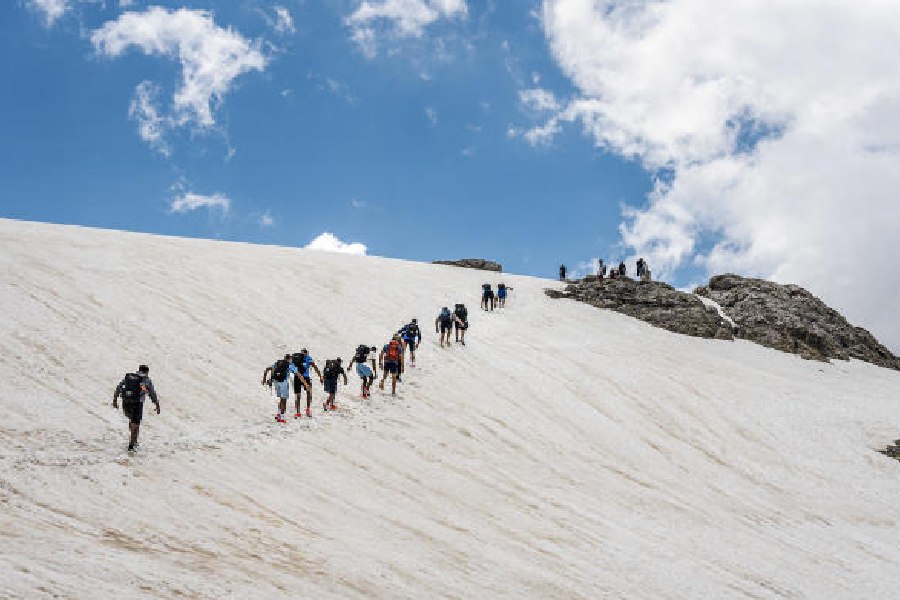Till a few decades ago the concept of boot camps hardly mattered in the professional world of sport, but it has caught on as coaches try to innovate ways for mental conditioning of the players.
Motivational coach and explorer Mike Horn, 58, knows a thing or two about overcoming such obstacles having worked with Mahendra Singh Dhoni’s side in 2011 and Germany in the 2014 football World Cup during their successful campaigns.
When the Olympics-bound hockey team decided to take his help at his base in Château d’Oex, Switzerland, it didn’t come as a surprise. But his decision to make the players walk on Glacier 3000 in the Alps, or cycle through the breathtakingly beautiful Rougemont in Switzerland left many bewildered.
Questions were raised: What have these got to do with hockey? Once Harmanpreet Singh’s men claimed the bronze in Paris, such talks have been rubbished.
“It may seem completely unrelated, but as soon as you put someone in an unfamiliar setting like walking on a glacier, tying them all together and exposing them to potential dangers, their mindset begins to shift. In that environment, the stakes are high, and the only way to avoid a dangerous outcome is to work as a team and communicate effectively.
“If one person slips, the others must immediately act together to prevent them from falling further and pulling the entire team down. These are powerful lessons that transcend the situation and can be applied to virtually any area of life,” Horn told The Telegraph on Monday.
“The same goes for cycling. Why take a bus or a car when we can use the power of our legs? Why choose the easy road when the rugged trail can teach us so much more? If one team member is slower or takes a fall, who will stop to help? These experiences, seemingly simple, are rich with parallels to team dynamics and personal growth.
“Often, we don’t even realize the profound lessons hidden in these challenges, and that’s why I focus on what might seem like minor details. These small moments have the potential to transform a team, fostering unity, resilience, and a deeper understanding of one another,” he said.
This teamwork and camaraderie generated at the camp helped. “During the boot camp, I focused on instilling a mindset of fearlessness, adaptability and teamwork. The goal was to help them embrace discomfort and uncertainty, which are inherent in competitive sports. We worked on developing a strong mental attitude where setbacks are viewed as learning opportunities rather than failures.
“By pushing the players into challenging situations during the camp, we aimed to reframe their perspective on pressure and adversity, encouraging them to remain calm, focused and confident regardless of the circumstances,” Horn said.
“These unfamiliar experiences force them out of their comfort zones, introducing them to unfamiliar environments and demanding perseverance and adaptability.”
Horn also dealt with the “fear of failure”, a common aspect among athletes.
“Fear of failure is a common challenge among athletes, especially when the stakes are as high as the Olympics. We addressed this fear head-on by emphasising a process-oriented mindset over a result-oriented one.”
Did he set any targets for the team? “Rather than setting specific targets like winning a medal, the focus was on the process... preparing the team mentally and physically to perform at their highest potential. My vision of success was not solely tied to the outcome but rather to the team’s ability to stay resilient, play cohesively, and remain mentally strong.
“Winning the bronze was a testament to their hard work and the growth they experienced during the camp, but the real success lay in how they handled the pressures and challenges.”










